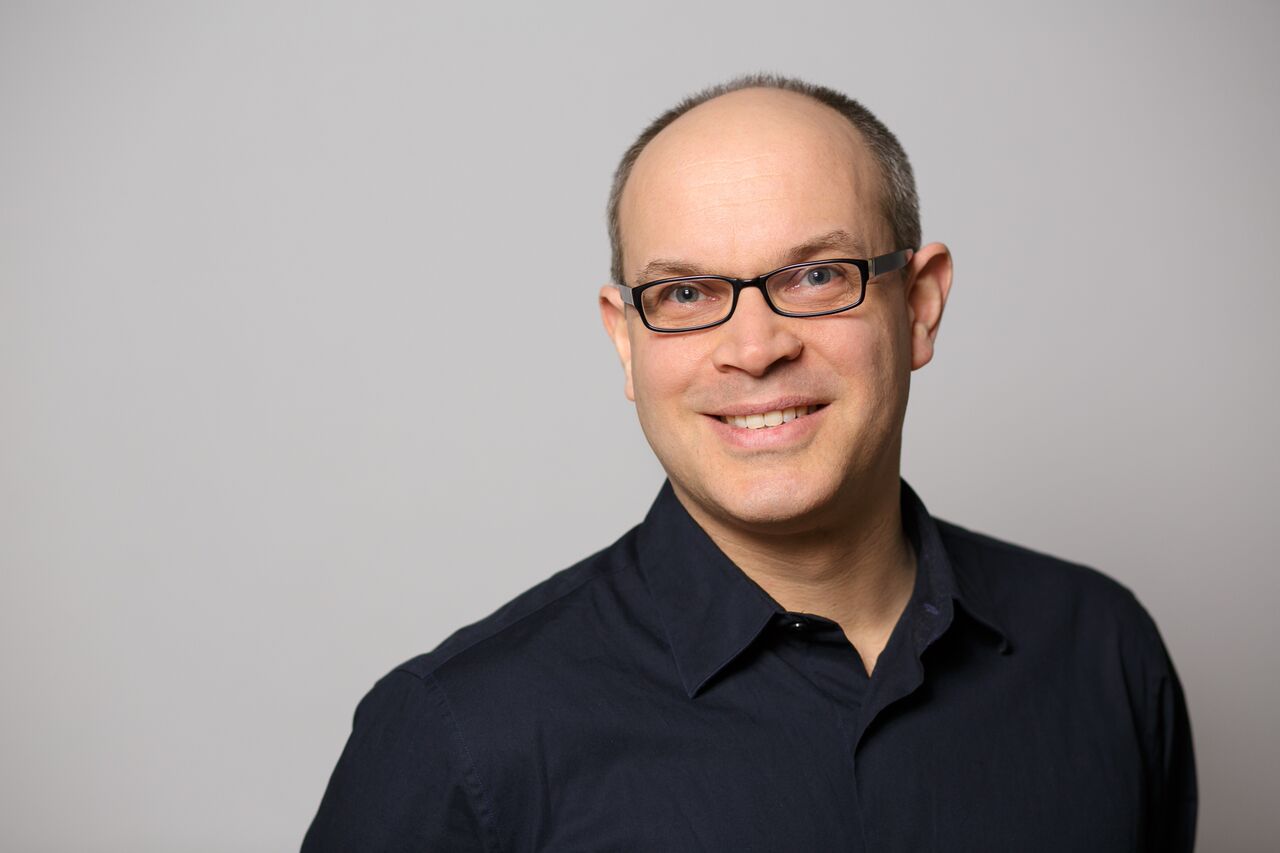
Bildnachweis:
Universität Heidelberg, Kommunikation und Marketing
Prof. Dr. Oliver T. Fackler
Department of Infectious Diseases, Integrative Virology
Heidelberg University Hospital
69120 Heidelberg, Germany
Phone: +49 6221-56 1322
E-Mail
FIELDS OF INTEREST
Immuno- and cell biology of HIV infection; mechanism and relevance of actin remodelling and host cell motility in HIV infection; T cell receptor signal transduction; molecular biology of diaphanous related formins.
AWARDS & HONORS
| 2016 | Jahrespreis der Universität Heidelberg für besondere Leistungen in Forschung und Lehre |
| 2005 | Group Leader Fellowship, Chica and Heinz Schaller Foundation |
| 2003 | Habilitation in Experimental Virology at the Medical Faculty of Heidelberg University |
| 2001 – 2004 | Emmy-Noether Fellowship for an independent junior research group, DFG |
| 1999 – 2000 | Postdoctoral fellowship, DFG |
| 1997 – 1999 | Postdoctoral fellowship, Howard Hughes Medical Institute |
| 1998 | “General Accident” Insurance Award for the best thesis in the Medical Department of the University of the Saarland |
| 2013-present | Head of section Integrative Virology, Department of Infectious Diseases, Virology, University Hospital Heidelberg |
| 2007 | W3 professor at the Department of Infectious Diseases, Virology, Heidelberg University |
| 2003 | Habilitation in Experimental Virology, Medical Faculty, Heidelberg University |
| 2000-2007 | Group leader, Department of Virology, Heidelberg University |
| 1997-2000 | Postdoctoral fellow, University of California at San Francisco |
| 1994-1997 | PhD in molecular virology (Homburg/Saar) |
| 1993-1994 | Diploma thesis in molecular virology (Homburg/Saar) |
| 1989-1993 | Studies in biology (Saarbrücken) |
|
|||||||||||||||||||
(*designates multiple corresponding authors)
Stolp B, Stern M, Ambiel I, Hofmann K, Morath K, Gallucci L, Cortese M, Bartenschlager R, Ruggieri A, Graw F, Rudelius M, Keppler OT, Fackler OT (2022). SARS-CoV-2 variants of concern display enhanced intrinsic pathogenic properties and expanded organ tropism in mouse models. Cell Reports 38, 110387, February 15, 2022, https://doi.org/10.1016/j.celrep.2022.110387
Kaw S, Ananth S, Tsopoulidis N, Morath K, Coban BM, Hohenberger R, Bulut OC, Klein F, Stolp B, Fackler OT .(2020). HIV-1 infection of CD4 T cells impairs antigen-specific B cell function. EMBO J. 39: e105594.
Tsopoulidis N, Kaw S, Laketa V, Kutscheidt S, Baarlink C, Stolp B, Grosse R, Fackler OT (2019). T cell receptor-triggered nuclear actin network formation drives CD4+ T cell effector functions. Sci Immunol. 4: eaav1987.
Imle A, Kumberger P, Schnellbächer N, Fehr J, Carillo-Bustamante P, Ales J, Schmidt P, Ritter C, Godinez WJ, Müller B, Rohr K, Hamprecht FA, Schwarz U, Graw F, Fackler OT. (2019). Experimental and computational analyses reveal that environmental restrictions shape HIV-1 spread in 3D cultures. Nat. Comm. 10:2144
Baldauf HM, Stegmann L, Schwarz SM, Ambiel I, Trotard M, Martin M, Burggraf M, Lenzi GM, Lejk H, Pan X, Fregoso OI, Lim ES, Abraham L, Nguyen LA, Rutsch F, König R, Kim B, Emerman M, Fackler OT*, Keppler OT* (2017). Vpx overcomes a SAMHD1-independent block to HIV reverse transcription that is specific to resting CD4 T cells. PNAS.114:2729-2734
Imle A, Abraham L, Tsopoulidis N, Hoflack B, Saksela K, Fackler OT (2015). Association with PAK2 Enables Functional Interactions of Lentiviral Nef Proteins with Exocyst. mBio 6: e01309-15
Kutscheidt S, Zhu R, Antoku S, Luxton GGW, Stagljar I, Fackler OT*, Gundersen G* (2014). FHOD1 interaction with nesprin-2G mediates TAN line formation and nuclear movement. Nat Cell Biol. 16:708-715
Fackler OT*, Murooka TT, Imle A, Mempel TR* (2014). Adding new dimensions: Towards an integrative understanding of HIV-1 spread. Nat Rev Microbiol. 12:563-574
Stolp B, Imle A, Coelho FM., Hons M, Mendiz RG, Lyck R, Stein JV*, Fackler OT* (2012). HIV-1 Nef interferes with T lymphocyte circulation through confined environments in vivo. PNAS. 109:18541–18546
Baldauf HM, Pan X, Erikson E, Schmidt S, Daddacha W, Burggraf M, Schenkova K, Ambiel I, Wabnitz G, Gramberg T, Panitz S, Flory E, Landau NR, Sertel S, Rutsch F, Lasitschka F, Kim B, König R, Fackler OT*, Keppler OT* (2012). The deoxynucleoside triphosphate triphosphohydrolase SAMHD1 restricts HIV-1 infection in resting CD4+ T cells. Nat Med. 18:1682-1687
Stolp B, Reichman-Fried M, Abraham L, Pan X, Giese SI, Hannemann S, Goulimari P, Raz E, Grosse R, Fackler OT (2009). HIV-1 Nef interferes with host cell motility by deregulation of cofilin. Cell Host Microbe. 6:174-186
Click here for further publications.
